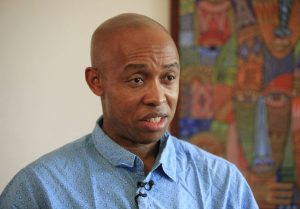Rio restarts soccer league next to field hospital for COVID


RIO DE JANEIRO (AP) — Copa Libertadores champion Flamengo and tiny Bangu were to play at the empty Maracanã Stadium Thursday night in the first professional soccer match in South America for almost three months.
Only a few meters (yards) away, by the arena’s gate 2, a field hospital with 400 beds for COVID-19 patients reminds the few spectators why many health experts think it is too soon for soccer competition to resume.
More than 47,700 people have died because of the new coronavirus in Brazil, and nearly 1 million have been infected. Rio de Janeiro state accounts for about 8,000 deaths, but authorities agreed to let soccer return this week after the number of available intensive-care unit beds showed slight improvement. Health experts predict Brazil’s peak of contagion in the crisis will be in August.
Flamengo players arrived wearing masks, and looked excited to be back. They have practiced for three weeks, some days against recommendations. But some of their fans outside were protesting. Jumping and chanting with supporters of rival clubs, some fans also think it is too risky for soccer to return before Rio and Brazil have more control over the spread of the virus.
They also protested against President Jair Bolsonaro, who hinted he could attend. Soccer’s early comeback in Brazil is a victory for the president, who sided with Flamengo in the lobby. Rodolfo Landim, the president of the club, was in the capital Brasilia on Wednesday with Bolsonaro when Rio’s soccer organizers announced the match schedule.
Brazil’s president is one of the few leaders in the world to downplay the risks of COVID-19.
Two other top Rio clubs have rejected the move to start games. Fluminense and Botafogo have threatened to take the case to sports courts to avoid an early return.
The Brazilian championship, which was scheduled to start in May, has no date to begin. Clubs in other state leagues are considering a return next month if health authorities agree.
Club executives, the referee, his assistants, the media and a few others who entered the stadium had to undergo health checks.
All athletes had to go through a disinfection booth to be sprayed with sanitizer upon their arrival. They also had their temperatures taken by health staff.
Everyone except the players had to wear masks on the pitch.
____
AP sports writer Mauricio Savarese reported from Sao Paulo.







